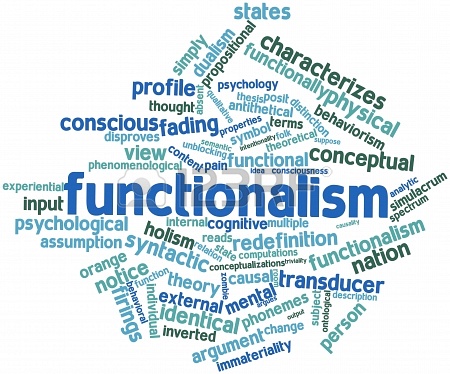
We know that freedom of thought is something recent, born a few centuries and developed exponentially with the invention of all the new means of mass communication which permit its expression, and if we find a symbolic startup of this trend can certainly place from the intellectual point of view in the proclamation of "free examination" of the scriptures by the Protestant church, and from the "physical" in the birth of the printing process with the subsequent dissemination of books and the ability to read them. It's not so hard to notice that since the Protestant Church gave everyone the chance to interpret the Holy Scriptures as best saw fit arose a myriad of denominations and different sects, each of which is considered to be the sole repository of the correct interpretation. This simple statement, covering all fields of thought, has inevitably led to an intellectual side to a production which never had seen before in human history, but the other has inevitably eclipsed by the West, the concept of intellectual truth, that is now totally misunderstood, often denied, and often bent to the will and the interest of the ruling classes.
Freedom of thought should in fact be the instrument to search for the truth, and once you find this should remain the foundation of all subsequent world view, but the demise of the western horizon this concept, or its extreme relativism, have transformed the means in order to point out that freedom of thought and expression thereof are considered "inalienable human rights" such as the right to life, or rather, the right to life is not in fact an inalienable human right, while the right to freedom of Thought so.
What is opposed to the exaltation of the freedom of thought? Usually the period of the Inquisition, where many heretics were burned at the stake for having supported thesis in stark contrast to the official doctrines of the Church, and then to the totalitarian period, where opponents of dictatorial regimes intellectuals were imprisoned or exiled for expressing opinions or ideas contrary to the dominant ones. I do not want to pass judgment on these two situations as they would mean extensive explanations, but just look, sine ira et studio, the results that this situation has led.
Today there are more shared parameters to which to refer to evaluate the truth or otherwise of any concept, and I myself have found very often to discuss the simple meaning of a word that my interlocutor interpreted in a certain way and to which (at least when I discussed with him) claimed that I adeguassi.
If there is not even agreement on the meaning of words, as you can find it on the concepts or even on the "concept" for excellence that is to truth?
Theologians and philosophers, who should be those most targeted search of the truth, have lost any capacity and intuitive computing, becoming an event of historical theology and another in history of philosophy, and simply record and communicate thought of their predecessors.
What, then, he led the "freedom of thought"? The non-thought, a vague and confusing intellectual slime where the nonsense most obvious have the same dignity intellectual thoughts higher and nobler, a slime in which a brilliant thought of truth, which will always be lonely because the truth is not understandable by all, it will sink inexorably into the mud of intellectual expressions stupid and vulgar, often coinciding with special interests, caste or even personal, since these are to have a sufficient power of the media to disseminate it.
But there is an exception. In the "vast sea" of free thought there is a "truth" untouchable: that of science. Science can not put into question, it is sacred. Of course some will say that is not true, argues that science every day, so that questions everything: safe, but only on the inside, just like it always has the Church with the various councils and various assizes in where debates were held accesissimi perhaps even more than among scientists; but, when it was decided, what was communicated outside was indisputable dogma was, that people could not simply take note, and the Church was the only institution authorized to change it and ridiscuterlo. For modern science happens the same: in lively discussions, but once you have made a decision that is, he is saddled the attribute of "scientific" that turns it into dogma and no longer has to venture to put its beak. Sure in theory you can do it, no one puts you at the stake, but the consent given to what is considered science is such that anything that can not boast of this noble title will be ridiculed by the great mass media apparatus, or declassified in crap, to superstition, and if a concept appears briefly fancier will be lucky enough to earn the title of "Saw mental".
The scientific community has become, in actuality, what was the Church in the Middle Ages.
References:
https://en.wikipedia.org/wiki/Freedom_of_thought
http://www.criticalthinking.org/pages/a-history-of-freedom-of-thought/649
https://www.catholicculture.org/culture/library/view.cfm?recnum=5474







